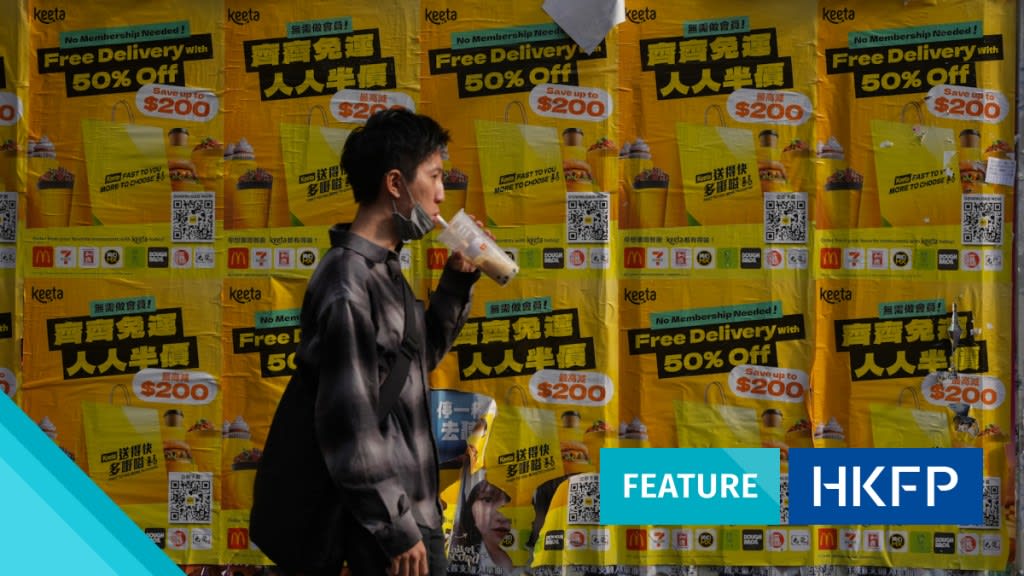
A week after Deliveroo announced its exit In March, from the Hong Kong market, restaurant owner Chris Chow got an ultimatum from Keeta, a food delivery service supported by the massive Chinese retailer Meituan.
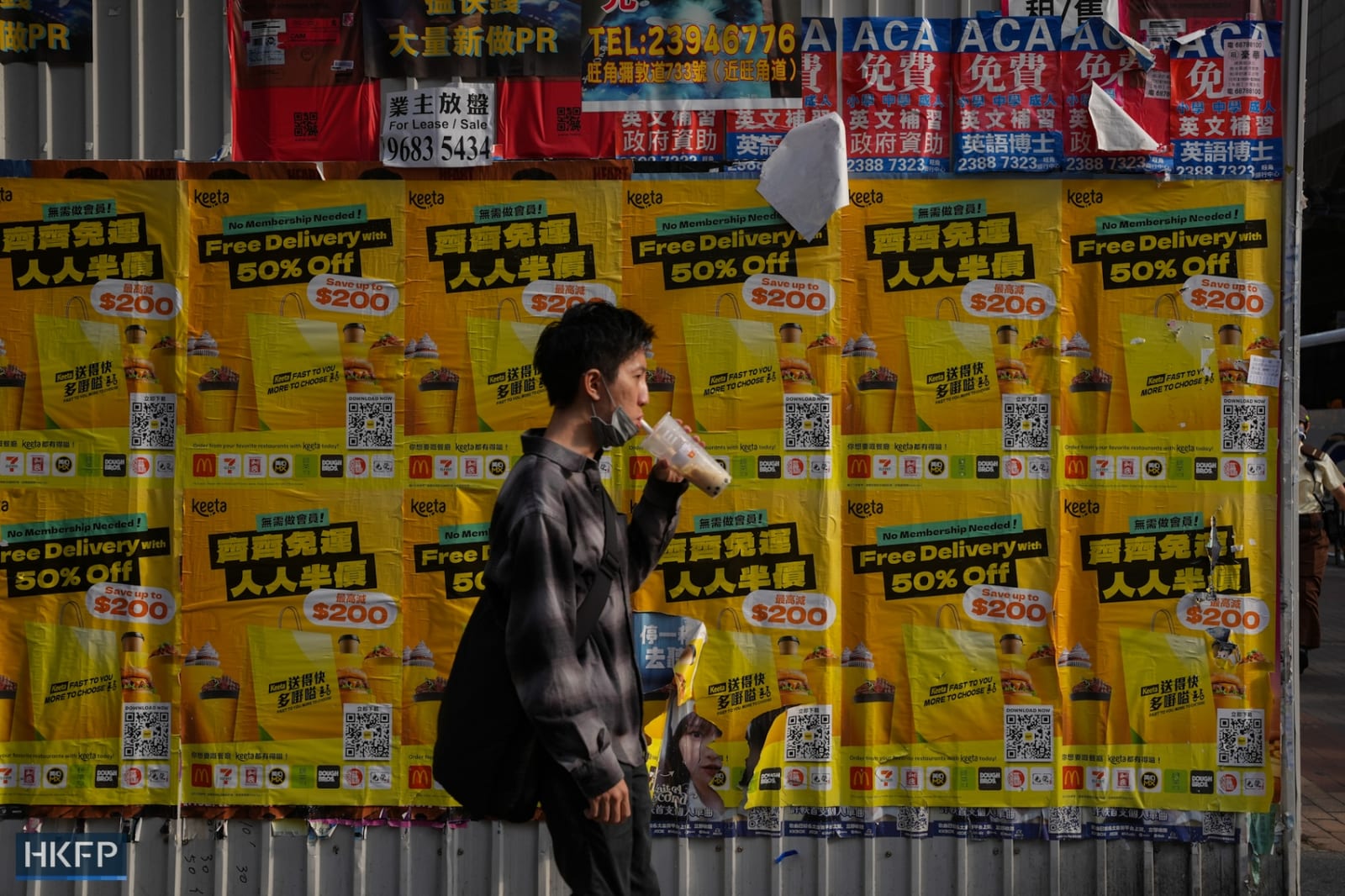
It required a increased commission rate for takeout orders, rising from 25 to 28 percent, unless his restaurant agreed to an exclusive partnership with them.
The exclusivity clause would prevent Chow from working with Keeta’s sole remaining competitor, the Singapore-based foodpanda, which acquired some of Deliveroo’s assets.
The proprietor of the restaurant viewed Keeta's proposal as another attempt to tighten its grip on the market following its forceful growth, which compelled longtime rival Deliveroo to exit Hong Kong. The British firm ceased its activities in the city on Monday.
Some argue that the pricing battle among food delivery platforms has underscored the power of Chinese investment in eliminating competition from the marketplace, which could affect not only customers but also entrepreneurs and delivery personnel over time.
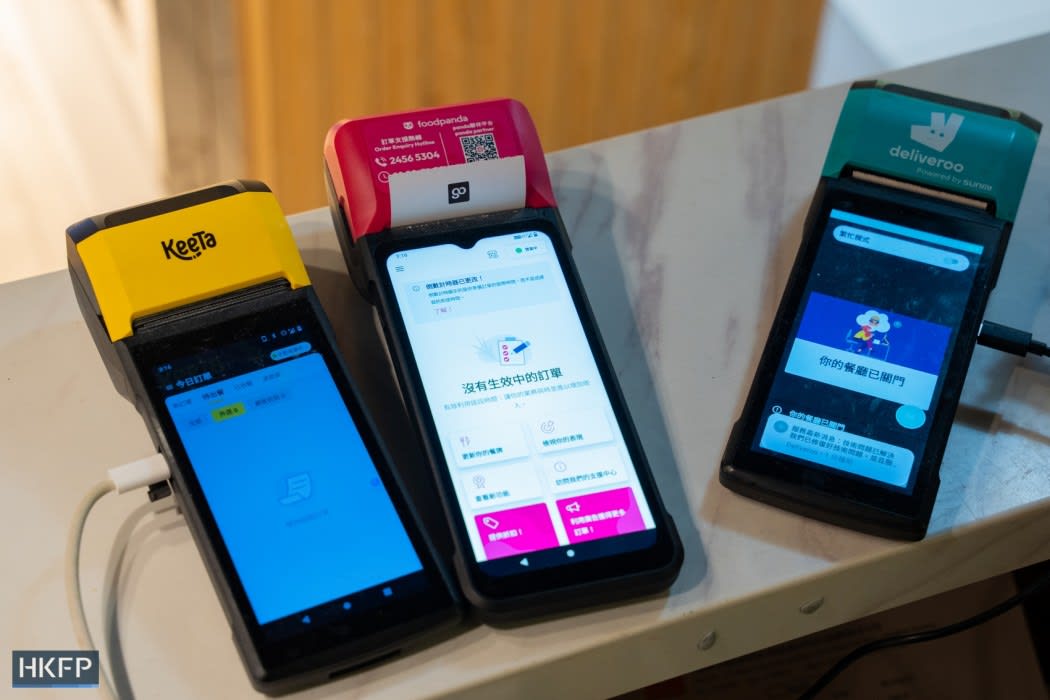
In just a few months since Keeta launched in the Hong Kong market, over 85 percent of takeaway orders at Chow’s restaurant in Kwun Tong were placed via the Chinese platform, he revealed during an interview with HKFP last month.
"Everybody is claiming they exclusively use Deliveroo and have never tried Keeta," he said. said On March 11, he posted about it on his restaurant’sThreadsaccount, just one day following Deliveroo's announcement of their departure.
Chow mentioned that his eatery received significantly more orders from Keeta compared to other food delivery platforms.
“He went on to say in the post, ‘Don’t mix up what you see online with reality,’ ”
Thanks to significant funding from its parent organization, Keeta adopted a growth-focused approach upon entering the Hong Kong market. By providing meal discounts to customers, the company managed to capture a considerable share of the market.
Keeta’s aggressive growth strategy included targeting delivery personnel, luring them with more lucrative salaries. Consequently, as these workers shifted to the Chinese platform, enterprises affiliated with its rivals suffered significantly.
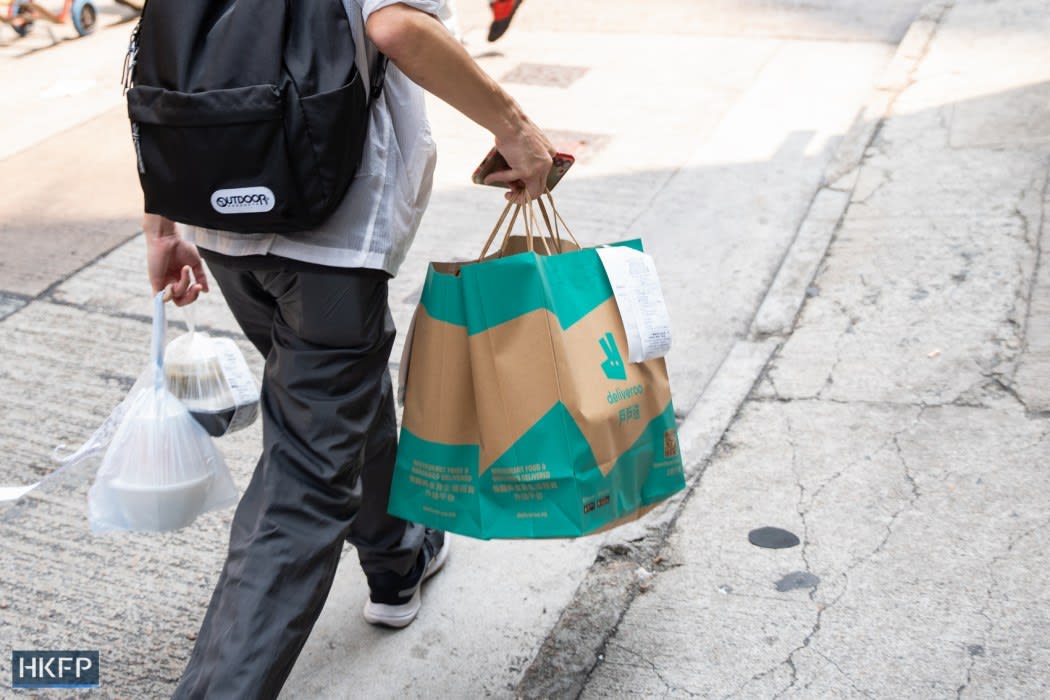
When Keeta launched In Hong Kong in May 2023, shortly after the city eased its pandemic measures and opened its borders again, the new delivery platform "hired every single [ Deliveroo ] rider," as Lam recounted. His frozen meat business thrived due to the increased demand for delivery services during the height of the Covid-19 outbreak.
He chose not to reveal his complete name because of potential business consequences.
When orders started coming in, there weren’t any riders available for pickup for over an hour since Keeta had taken them all," he explained. "This situation occurred roughly within a period of three months.
Price war
Chow, who also operates a restaurant in Tseung Kwan O, where about forty percent of the orders come from deliveries, had been aware for several months prior to the official announcement that Deliveroo was facing difficulties before their withdrawal.

In mid-2024, roughly one year since Keeta joined the local market, the percentage of Deliveroo orders at the restaurant stood at just single digits. Keeta accounted for around 85 percent, with foodpanda capturing approximately 10 percent.
"Given the volume of orders, it was clear that Deliveroo had reached its limit," Chow stated. Keeta’s "approach to pricing proved highly successful. When money is being handed out freely, there’s no incentive to refuse it," he further explained, alluding to the promotional discounts and wages provided by Keeta during its initial phase.
He stated that the Chinese delivery platform "was pouring funds into ensuring that other platforms ran out of orders." He added, "[Deliveroo], having exhausted all its remaining orders, couldn't continue operations."
With a strategy often referred to as a "money-wasting" campaign, Keeta captured 44% of the food delivery market by order volume in March 2024, just under one year since entering the sector. according to the data analytics company Measurable AI.
Compared to others, foodp panda secured 35 percent of the market share, whereas Deliveroo took 21 percent, respectively.
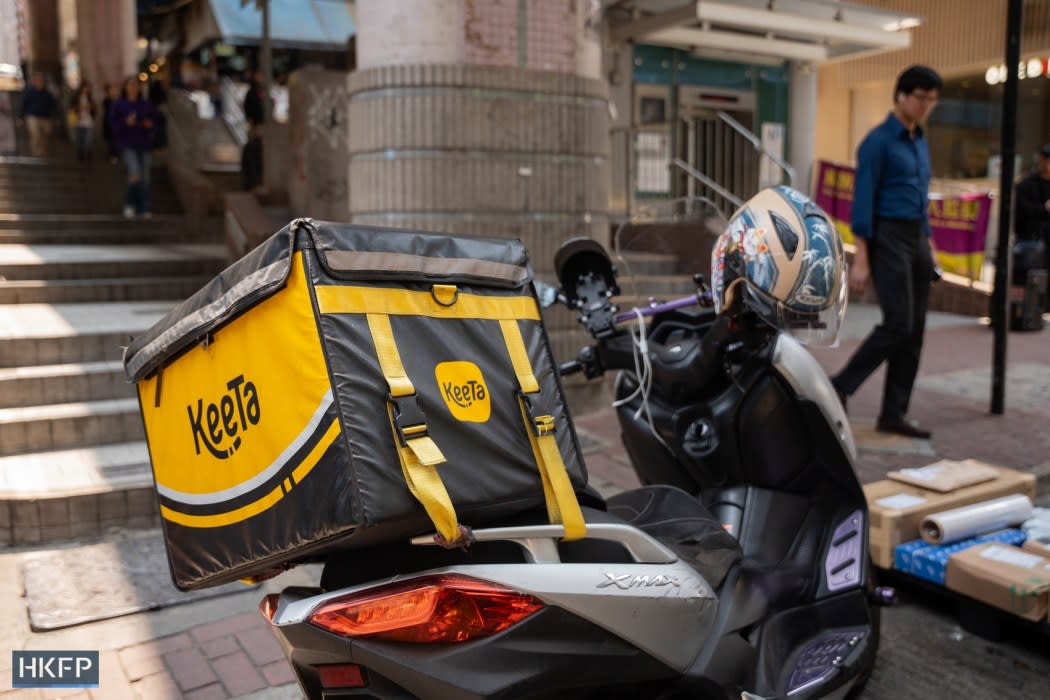
Meituan, which is listed on the Hong Kong stock exchange, aims to apply a similar pricing disruption strategy in Saudi Arabia as part of its initial venture into the Middle East region. market .
Deliveroo’s 2024 annual report Released soon after its announcement of exiting, the report labeled Hong Kong as a "straggler" amongst key markets because of the "difficult competitive landscape."
The report indicated a 5 percent adverse effect on Deliveroo’s gross transaction value growth in international markets due to the city's influence, highlighting "the price sensitivity of customers" particularly within the Hong Kong market, seemingly alluding to Keeta’s pricing approach.
"We concluded that achieving a sustainable and profitable scale would require significant financial investment, and the anticipated returns from this investment did not meet our threshold requirements," the statement read.
Given Keeta’s aggressive pricing tactics, Deliveroo’s approach, which heavily relied on advertisements, did not prove profitable. It was expected that customers would opt for the more affordable choice, Chow explained to HKFP.
When you're buying the exact same product, there's no justification for choosing the option that has a slightly higher price," he stated. "However, could this trend be detrimental to the sector over time?
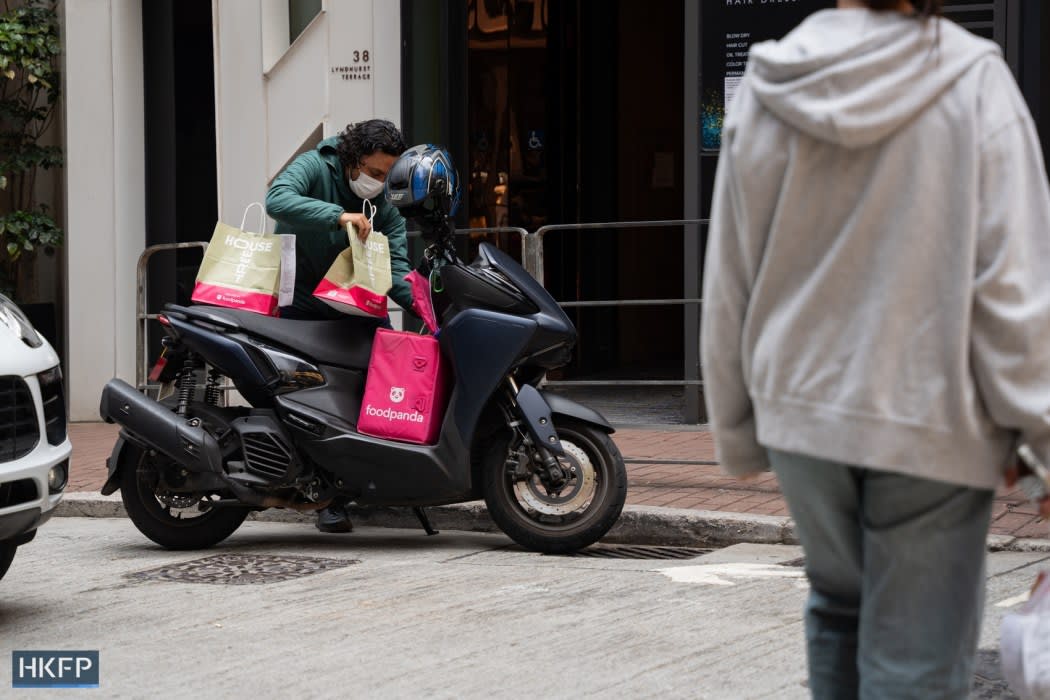
Starting from last year, Lam has been managing a restaurant in Kennedy Town and also dealing in frozen meats.
Although his eatery doesn't depend significantly on deliveries, which make up fewer than 10 percent of its operations, he must still manage interactions with these online platforms.
Mainly, Lam's experience with Keeta has been favorable. He commended the platform's quick customer support, noting that they could manage menu updates "in just hours," whereas such adjustments often took foodpanda several weeks.
Chinese capital, pragmatic consumers
Following the Deliveroo statement, many customers lamented the departure of the teal, kangaroo-emblazoned service and criticized Keeta for what they perceived as an excessively assertive expansion fueled by financial backing from China.
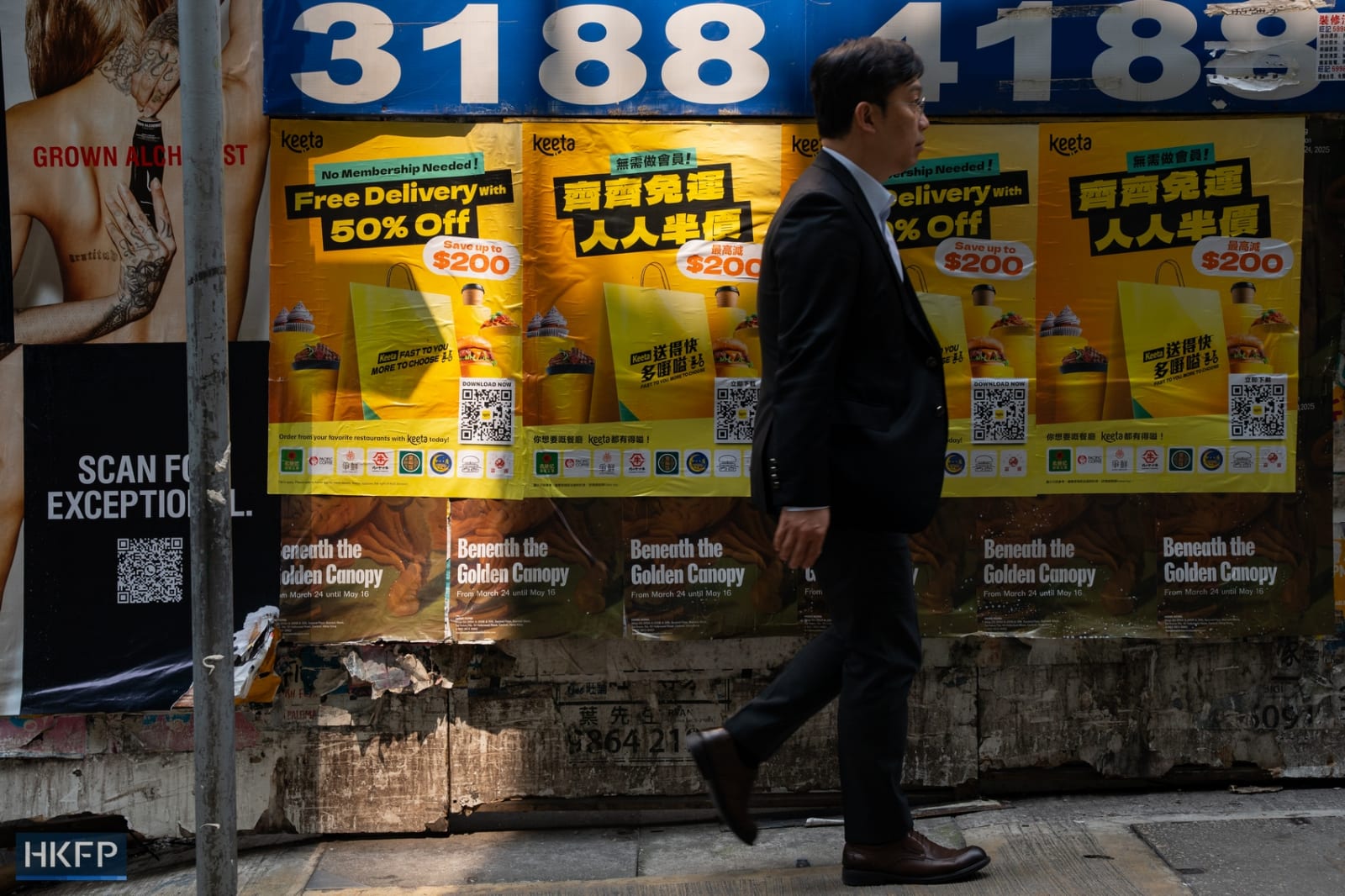
On March 10, when Deliveroo revealed its departure, Keeta posted something on social media. saying "Nine years of dedicated effort," alluding to the competitor's time operating in Hong Kong.
"We pledge to safeguard each stomach in Hong Kong," it went on. "Get fresh, piping-hot meals delivered to every household as quickly as we can," was accompanied by the hashtag #welcometokeeta.
Several online commentators criticized the statement, describing it as "in poor taste."
However, for Chow, the harsh truth was that Keeta gained its prominence largely because of Hong Kong residents' pragmatic spending behaviors, despite these individuals perhaps not having a particularly positive opinion of Chinese firms.
"According to Meituan's data, their pricing strategy has indeed met the satisfaction of many residents in Hong Kong," he stated.
Keeta secured victory "solely due to the pricing." This demonstrates that Hong Kong residents are highly practical and recognize what advantages them.
"Although Keeta’s price war may not have been beneficial for the industry, it did provide advantages to consumers," Chow stated.
"He mentioned that when Deliveroo exited Hong Kong, some individuals stated they exclusively used Deliveroo and intended to rely more on Foodpanda to prevent Keeta from monopolizing the market," he explained.
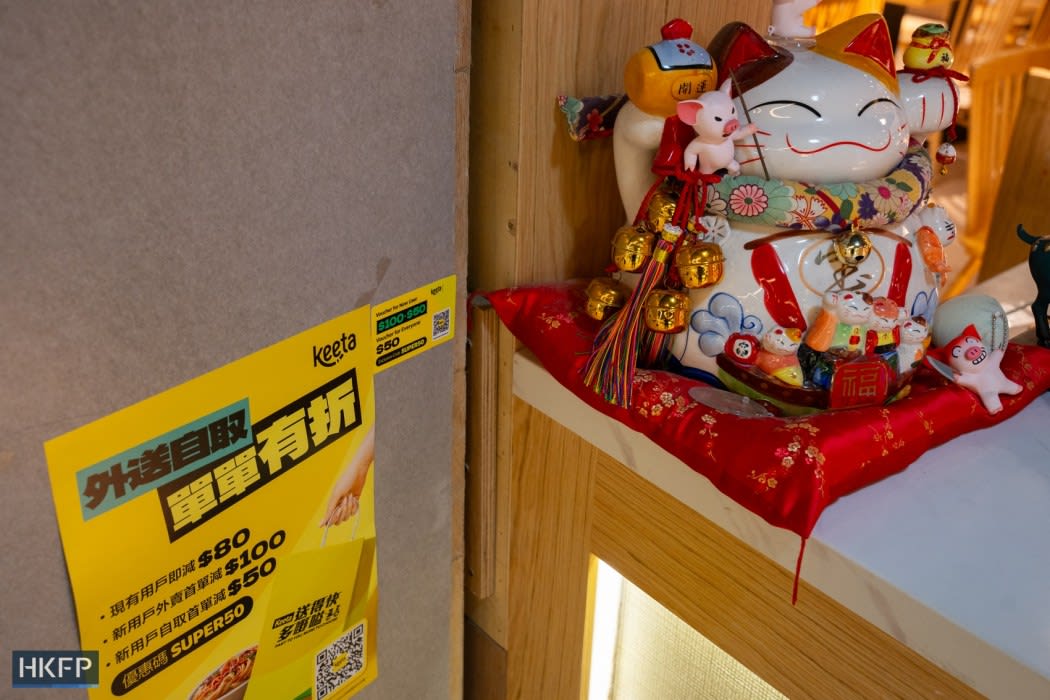
“However, considering the present social atmosphere, I don’t see that occurring. While there are individuals who emphasize political aspects, their numbers have dwindled in recent years. Those remaining in Hong Kong must decide whether they can accept this situation.”
Au Yeung Tat-chor, an assistant professor of sociology and social policy at Lingnan University, stated, "Given that a significant number of individuals are choosing to spend their money across the border, it indicates that most people do not prioritize where their capital originates from."
He was talking about residents of Hong Kong who frequently crossed into Shenzhen to find more affordable meals and various cheaper forms of entertainment, a pattern that has sparked worries regarding local spending habits.
In February, the massive Chinese e-commerce company JD.com declared its entry into the food delivery sector of mainland China, positioning itself against leading competitors Meituan and Alibaba’s Eleme.
JD.com is also making a push in the Hong Kong market, launching aggressive online shopping offers and planning to open a mall Despite JD.com and Eleme showing no inclination toward entering the food delivery sector, concerns arise regarding the potential consequences of yet another pricing battle initiated by a Chinese firm in the market.
"If China's financial involvement completely takes over Hong Kong’s delivery platform ecosystem, it may deter international investments," Chow further explained.
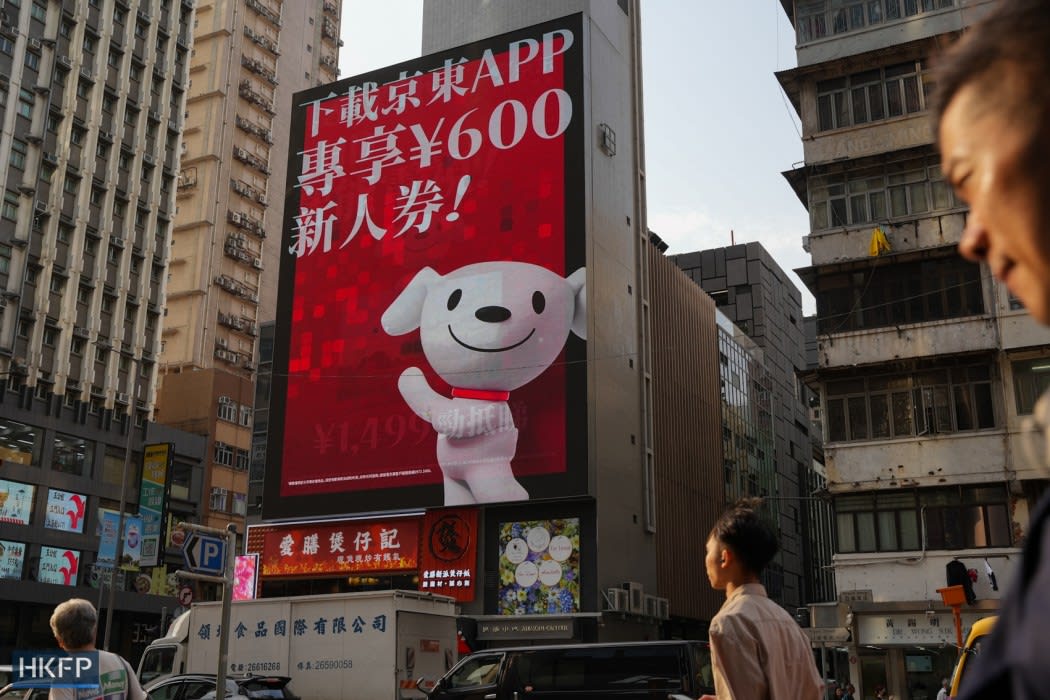
Au Yeung stated that such growth would align with a broader, existing trend "There is an increasing number of Chinese companies venturing into Hong Kong, particularly within the food and beverage industry," he stated.
However, Lam expressed his belief that foodpanda would remain a fixture due to its distinct market niche, primarily serving a more upscale clientele.
The parent company of Foodpanda, Delivery Hero, stated this in their statement Last month, they mentioned that acquiring Deliveroo’s customer base would broaden their range of services, "offering customers a wider variety of dining options from both restaurants and grocery stores, including some that were exclusively accessible through the Deliveroo platform."
‘Race to the bottom’
In the meantime, food delivery workers and their supporters—who argue that Keeta has the most adverse labor conditions compared to the other two platforms—are concerned about the potential entry of another Chinese rival into the market. They fear this could lead to an expansion similar to what Meituan achieved.
"I believe it will turn out to be another case like Keeta’s," stated Justine Lam, a program coordinator for the Riders' Rights Concern Group.
Should this occur, employees may encounter a similar predicament: they could choose increased pay, though potentially risking greater exploitation in the future.
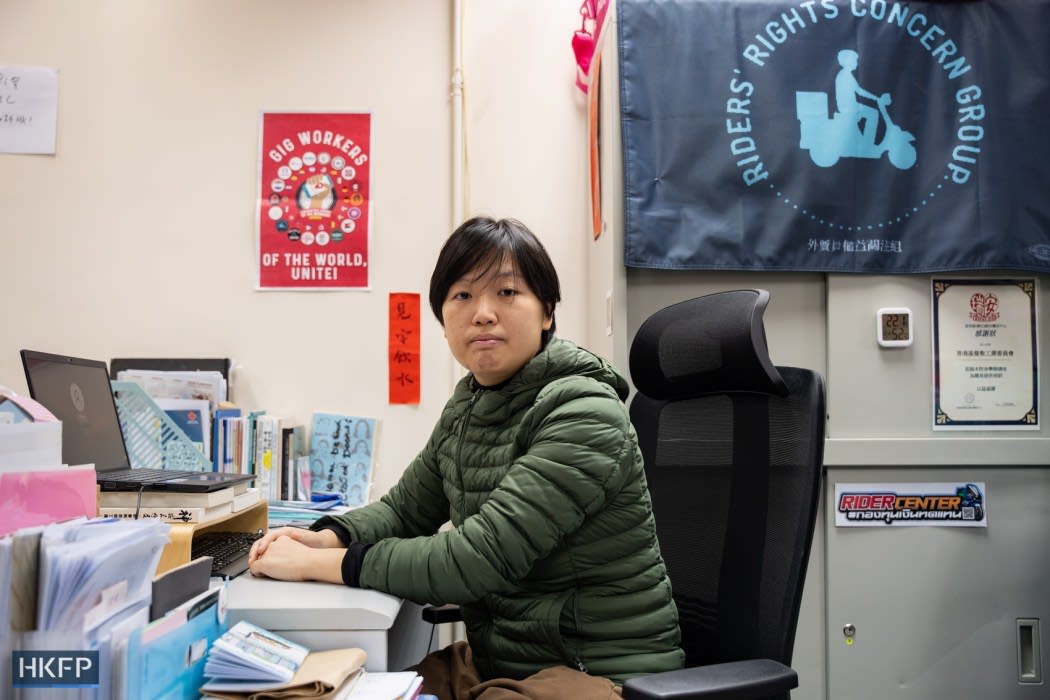
Keeta's approach was instrumental in securing a firm hold over the labor force, becoming a crucial element of its achievements.
During the initial three months of operating in the Hong Kong market, the Meituan affiliate provided delivery personnel with substantially higher compensation, amounting to approximately HK$40 per order, according to delivery worker Lumos Chiu.
By early April, however, this number had fallen as low as HK$20.
Nevertheless, following Deliveroo’s departure, the remaining two platforms are said to be involved in an ongoing competition to attract delivery personnel.
Chiu mentioned that Keeta and FoodPanda have been providing their delivery personnel with significantly higher wages, particularly during busy periods. This observation comes from Chiu’s experience of working for both companies in Shek Mun.
In the meantime, Keeta has introduced an "earnings guarantee" program designed to provide a steady and reliable stream of orders. This comes with the condition of working longer hours and meeting stricter standards for service quality.
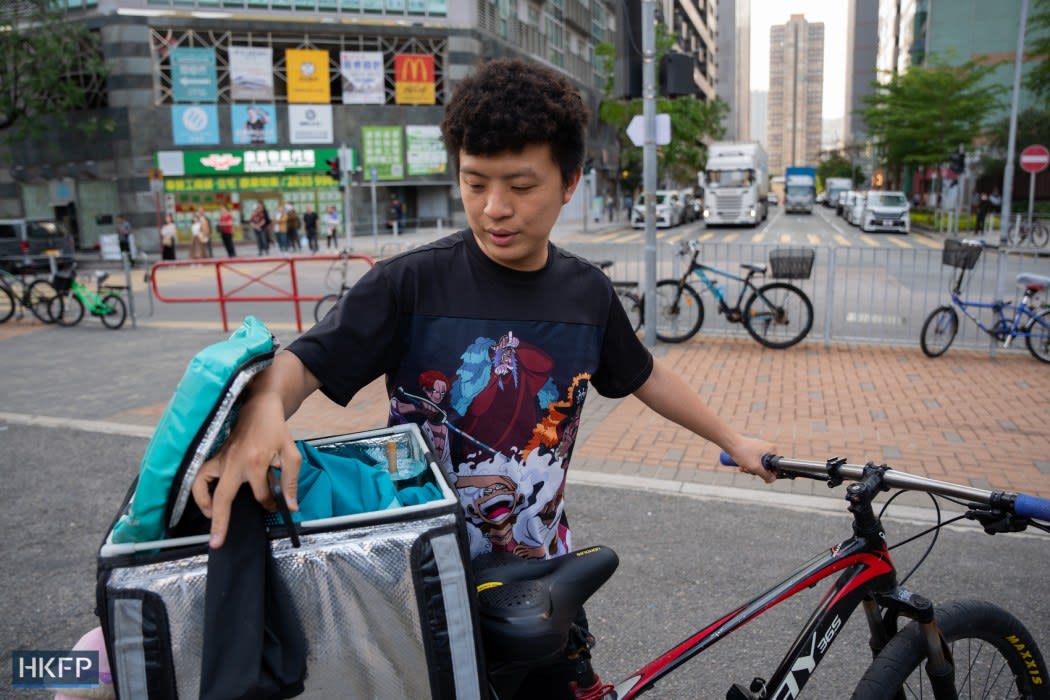
Chiu has been attempting to join Keeta’s profit program, even though he understands it will prevent him from being able to work for foodpanda.
Currently, his earnings are nearly equally divided between the two sources. While he gets slightly more requests from Keeta, he earns higher wages through foodpanda, catering to a relatively wealthier customer segment.
According to the Riders' Rights Concern Group, Keeta’s strong grip on the market should be bolstered by a sufficiently sizable and manageable workforce.
Through an incentive structure integrated within Keeta’s application, delivery personnel must "race" against one another to take on tasks, as clarified by Justine Lam. It is only the most committed couriers who can sustain a consistent stream of assignments; however, this comes at the cost of receiving comparatively modest pay per task.
Chiu mentioned that "Keeta is facing the consequences of its actions." He thought that after using up Meituan’s investments, Keeta was forced to change tactics and reduce labor expenses to become profitable.
"It’s clear that their objective is to drive workers to compete with each other by accepting lower standards," stated Lam from the concerned group, noting that many employees, particularly those working part-time, rarely receive assignments.
As a result, delivery workers "have no choice" but to endure the severe conditions, she explained. "If they don't comply, they won't have anything to eat."
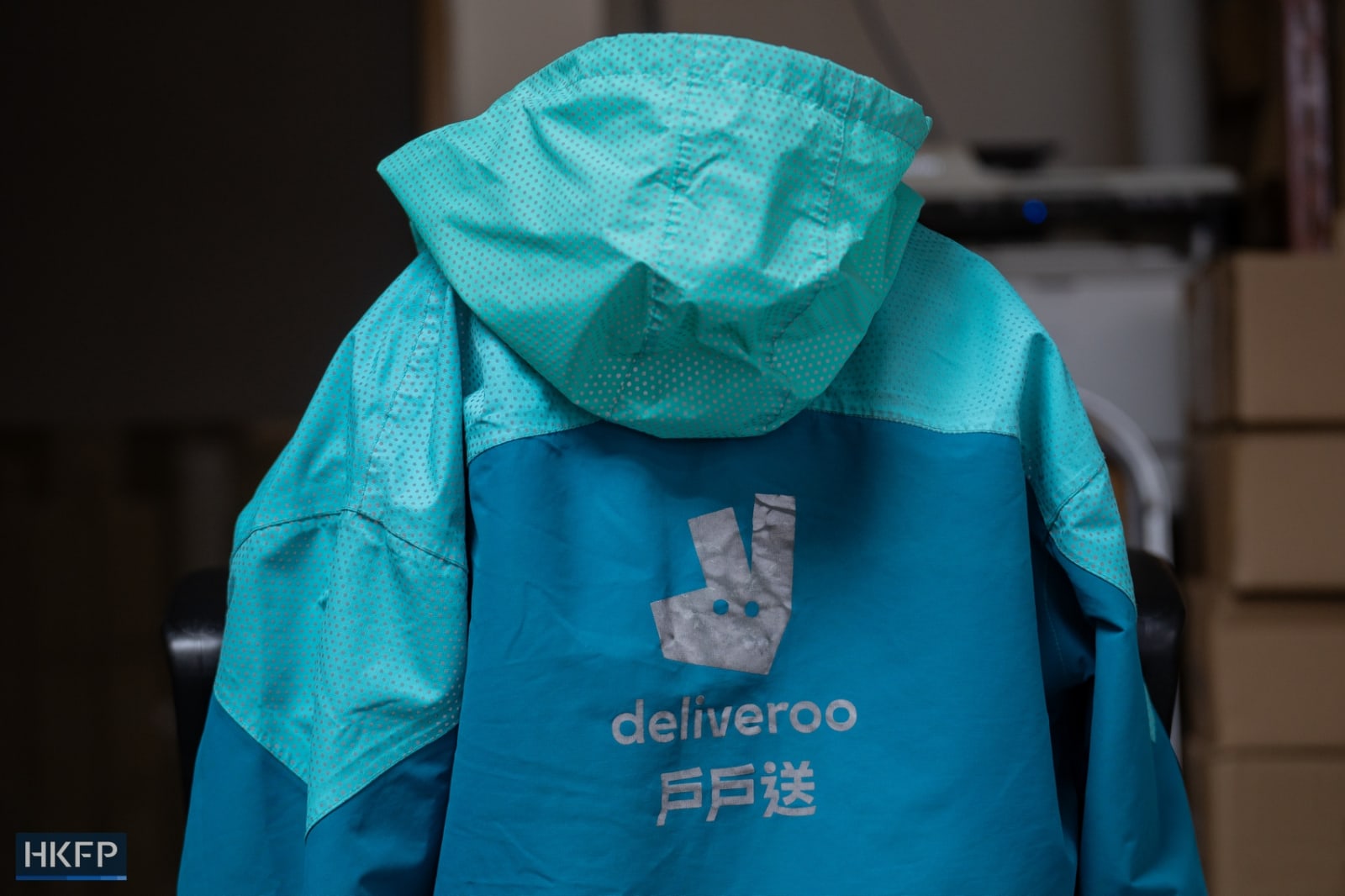
According to Hong Kong legislation, delivery personnel are regarded as self-employed contractors And thus, they do not qualify for the legal safeguards that would typically apply if they were officially recognized as employees.
Labor conditions across different delivery platforms are inherently not dissimilar The distinction usually lies in the degree of intensity, as mentioned by Lingnan’s Au Yeung.
Similar to how delivery workers view such requests, the academic characterized Keeta’s requirements as the harshest among the three .
"He mentioned that they aren't only worried about you rejecting commands; they're also afraid that you might rebel," he stated.
Aid in protecting press freedom and ensure HKFP remains accessible to all readers by supporting our team

Open the Youtube video
Open the Youtube video

Out Of Topic Show Konversi KodeHide Konversi Kode Show EmoticonHide Emoticon